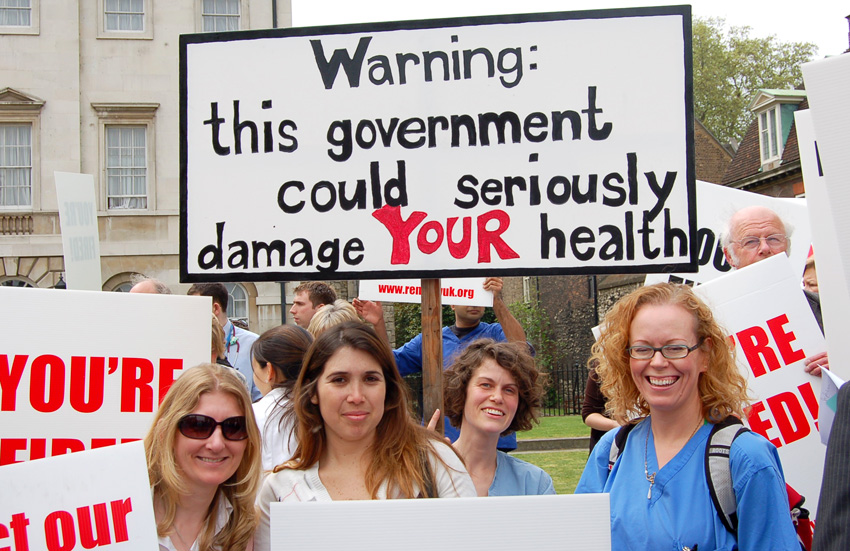‘WE’VE been screwed for too long. It’s time to stand up for ourselves and call for the BMA to support industrial action.’
This defiant statement from the junior doctors came after over 29,000 people signed a petition on Change.org UK, calling on the BMA to support industrial action against the imposition of an appalling new contract on junior doctors.
Their ‘Letter to the British Medical Association’ says ‘The government has decided to force through a new contract for junior doctors, resulting in unsafe working hours and a pay cut estimated to be around 30%.
‘Sociable hours are changed to 7am to 10pm Monday to Saturday resulting in an unacceptable loss of earnings, and replacement with higher-paid, lower-qualified “physicians’ assistants”. ‘This is following a year of other cuts, with the “new deal”, loss of accommodation and pensions decimated.’
The Junior Doctors Committee (JDC) voted not to re-enter negotiations with NHS employers on 13th August. The JDC could not accept the new contract and found it to be ‘unfair to doctors and unsafe for patients, particularly with regard to the following:
(i) It demanded extending plain time working hours from the current 7am to 7pm, to 7am to 10pm and adds in Saturday.
‘So working at 9am on a Monday would be regarded as the same as working 9pm on a Saturday night, and would only command basic pay.’
The JDC believes that, ‘If it costs less to employ a junior doctor during evenings and weekends, over the long term, we believe employers are likely to see JDs as a cheap way to staff seven-day services. Therefore the JDs may end up working fewer hours during the day, and more hours at evenings and weekends.’
(ii) Safeguards which discourage employers from making junior doctors working excessive hours would be removed.
At present financial penalties inhibit employers from making junior doctors work excessive hours. ‘Also, the government plans to reduce the number of breaks to just 20 minutes in any six hours. So on an 11-hour shift there would be just 20 minutes break, which is unsafe.’
(iii) the current pay progression with annual experience would be removed.
On the 15th September, the government announced that it would be imposing the new contract on junior doctors starting from April 2016. On the 17th September, JDC stated ‘the BMA will fight any attempts to impose a contract that negatively impacts how you work and your family life.’
Dr Andrew Collier, co-chair JDC, said: ‘We remain committed to agreeing to a contract that protects against junior doctors routinely working long hours; delivers a fair system of pay; values the vital role of training and does not disadvantage those in flexible training.’
The JDC is due to meet on 26th September, when there will be discussion of how to fight the imposition of the new contract. The BMA’s Annual Representative Meeting must be immediately recalled to give full support to the Junior Doctors by calling national industrial action and instructing the Consultants Committee to support the junior doctors by withdrawing from any new contract talks with the government!
